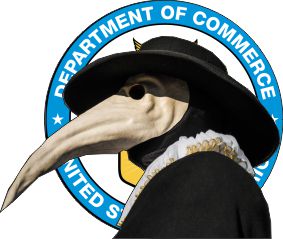ANTIDUMPING AGAINST FOREING HONEYS
NEXT TO A PRELIMINARY RESOLUTION
June 1st, 2021
 Versión en Castellano
Versión en Castellano (Espacio Apícola, June 1st 2021)
This is a key week in the demand for anti-dumping actions against honeys from Argentina, Brazil, India, Ukraine and Vietnam by the American Honey Producers Association (AHPA) and the Sioux Honey Assn. (SHA).
(Espacio Apícola, June 1st 2021)
This is a key week in the demand for anti-dumping actions against honeys from Argentina, Brazil, India, Ukraine and Vietnam by the American Honey Producers Association (AHPA) and the Sioux Honey Assn. (SHA).The decision of the United States International Trade Commission (USITC) is awaited, which must be issued before June 14th, if there was damage to the primary production of honey or not. The filings of the lawsuit, in general and in particular against Argentine honey, were conspicuously weak. The fluctuations in the prices of agricultural commodities, particularly in the same period of the requested investigation (POI), is much larger than the losses indicated by the plaintiffs and it does not seem reasonable to blame the supplying countries that, like Argentina, are at the expense of the same fluctuations in international markets.
Further, the United States imported a honey volume equivalent to its local production to satisfy it in 2000. Per each pound of honey produced in the USA, they had to import another pound. In 2000, American Beekeepers produced approximately 100,000 tons of honey and imported another 100,000. Currently, they produce approximately 70,000 tons and must import more than 200,000 to meet their needs. Now, for each local pound they must import three pounds of honey to meet domestic demand. It means that the premium segment of the market that local producers may have, increasingly reduced by their inability to meet their demand, does not have to feel threatened by those who supplement their lack or supply other less profitable sectors of the market putting the honey in the mouths of most American Citizens and the industry.
Finally, it is striking that Mark Mammen, current President Emeritus of the SHA, testified that they "had to import cheap honey to be able to compete in the domestic market by lowering prices" in the framework of the conference before the DOC, on May 12 (document No. 742120-1634566), as if only in 2018 that association had started importing honey. SHA always needed to buy honey from other suppliers in the country, even from importers. But the most striking thing is that at least from 2002 the SHA became an importer buying honey in Argentina, Brazil and India, which is why later it was harshly criticized among US beekeepers, something that was also public in different social networks. Mark himself, who was the President of Members Affairs of SHA, came to Argentina accompanying Jerry Probst (then President and CEO of SHA) and they bought directly to producers at least two containers of honey in Argentina in the second quarter of 2002, that they would have been to "fulfill the requirements of their registration as importers in the USA" as they declared at that time.
The Argentine beekeeping sector hopes that this demand will be finally dismissed, however, if the investigation is confirmed, it will remain to be known which companies would be investigated. The impact of this measure in Argentina will confirm the downward trend in the honey price in the last two months since these actions became known.
Fernando Esteban
Information generated by "Espacio Apícola" the Argentine Beekeepers' Magazine apicultura.com.ar

